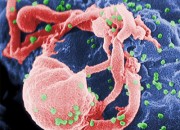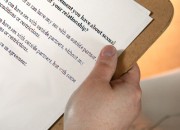Paul Bloom, a professor of psychology and cognitive science at Yale, acknowledges that there’s some support for the belief that viewing pornographic images results in objectification — that is, that the person being viewed (or the group of people that person represents) is not a subject capable of autonomy, but a thing to be acted upon — but he argues that images of naked people also cause viewers to recognize that those portrayed are capable of experience.
Research
The annual Ig Nobel gala happened last night at Harvard and among the winners were some fearless researchers taking a long, hard look at how “beer goggles” affect us. Conventional wisdom goes that the more you drink, the more attractive everyone seems to be. But what about the person drinking? Do beer goggles improve self-assessments of attractiveness? The award-winning findings suggest that not only does alcohol make us feel more attractive, just thinking that we’ve had a drink makes us feel more attractive than we are.
Human clinical trials are starting this month in the United States for SAV001-H, a vaccine developed by a team of researchers at the University of Western Ontario’s Schulich School of Medicine and Dentistry led by Dr. Chil-Yong Kang. The vaccine recently passed the first phase of trials, which were conducted on 40 HIV-positive individuals.
The powerful muscles running across a dolphin’s back and tail stalk (called the “peduncle”) that helps it move its flukes up and down in order to propel itself are the inspiration behind what we know as the “dolphin kick.” This style of movement underwater is so powerful, the governing body of competitive swimming restricts it. Guess what else dolphins do that they might restrict?
This summer sure hasn’t helped clarify the question of monogamy — and I’m not just talking about your escapades, you player, you. In July, two papers digging into the roots of monogamy hit the news simultaneously, one in the Proceedings of the National Academy of Sciences and the other in Science — but instead of bringing the issue closer to rest, the papers offered somewhat contradictory conclusions.
High-schoolers do it. College students do it. Stars do it. Politicians do it. Martha Stewart does it, for God’s sake! No matter how many horror stories we see in the media about people whose partners decided to share their private text messages and images, we’re all pretty much still at it. Last year, a poll by Lookout, a security company, reported that one in every five smartphone users send sexually explicit messages. Why do we persist?
Emory University is trying to understand how people negotiate rules regarding other sexual partners in their relationships.Fill out their survey to help them get a sense of the wide array of relationship agreements that exist in this country. Go on, do it. You overshare all over the internet already, so why not put in your two cents for science?
“Recent research and popular media reports have described intimate relationships among contemporary college students as characterized by a new and pervasive hookup culture in which students regularly have sex with no strings attached,” said Martin Monto, co-author of new research about the sex habits of college students. “We found that college students from the contemporary or ‘hookup era’ did not report having more frequent sex or more sexual partners during the past year than undergraduates from the earlier era.”
In 1957, Virginia E. Johnson was a twice-divorced mother in her 30s, looking for a way to support her children. She responded for an add posted by William H. Masters looking for a research assistant at Washington University in St. Louis. Johnson was hired by Masters, then at the Department of Obstetrics and Gynecology. Neither of them had any way of knowing at the time that they would go down in history for helping postwar America to discuss sex frankly.
Hypersexuality, known in popular culture as “sex addiction,” is defined as frequent or increased sexual urges or sexual activity. We’ve seen the phrase thrown around to explain all manner of indiscretions, but is “sex addiction” actually a thing? We asked this question in 2009 and while we still have no answer, we may be getting closer to the truth. Here’s a study from UCLA to get you thinking.
















